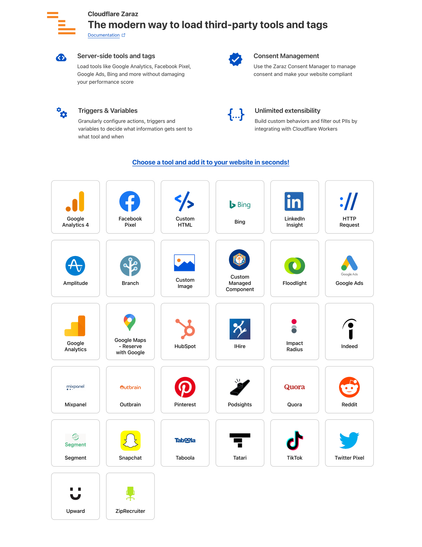The recent advice from the director of Canada’s intelligence agency urging Canadians to remove TikTok from their phones has raised significant questions. If TikTok poses a security threat, why aren’t similar concerns raised about other major platforms like Google and Meta (Facebook)? This article explores the nuances and distinctions that contribute to the perceived threat from TikTok compared to other social media giants.
TikTok’s Unique Position
TikTok, owned by the Chinese company ByteDance, has come under scrutiny primarily because of its potential connections to the Chinese government. According to the 2017 Chinese National Intelligence Law, any Chinese organization or citizen is required to support, assist, and cooperate with state intelligence work. This law has fueled fears that the Chinese government could access TikTok’s vast troves of user data [❞].
The types of data TikTok collects include device information, browsing history, app usage, and even biometric data such as facial recognition and voice prints [❞]. This extensive data collection, combined with the geopolitical tensions between China and Western countries, underpins much of the concern.
Comparisons with Google and Meta
While TikTok’s data collection practices are extensive, it’s important to recognize that Google and Meta also engage in comprehensive data harvesting. Both companies track user behavior across their services and third-party websites through mechanisms like tracking pixels and cookies. For instance, Meta (Facebook) has been found collecting sensitive data from various online platforms, including government websites and hospital portals [❞].
However, the primary difference lies in the geopolitical context and ownership. Google and Meta are US-based companies, which means their data practices are subject to US laws and regulatory frameworks. Despite controversies, there is a level of transparency and accountability expected from them. These companies also face significant scrutiny and regulatory challenges within the US and Europe, aimed at protecting user privacy and data security [❞].
Security and Privacy Concerns
Both TikTok and its US counterparts have faced accusations of misusing user data. TikTok’s keylogging feature, which tracks users’ keyboard inputs within its in-app browser, has raised alarms. Although TikTok claims this feature is for debugging and performance monitoring, it theoretically allows the collection of sensitive data such as passwords and credit card information [❞].
Google and Meta, on the other hand, have been involved in various data privacy scandals. For instance, Meta has been implicated in using tracking pixels to collect data from unsuspecting users on third-party websites [❞]. Both companies have extensive advertising networks that rely on detailed user profiles to target ads effectively, which involves substantial data collection and analysis.
Government and Regulatory Responses
Governments and regulatory bodies worldwide have taken steps to mitigate these risks. In the US, TikTok has been subject to ongoing scrutiny by the Committee on Foreign Investment in the United States (CFIUS) due to concerns over national security [❞]. CFIUS has the authority to compel ByteDance to divest TikTok if deemed necessary for national security.
Similarly, Google and Meta are frequently under the regulatory microscope. The General Data Protection Regulation (GDPR) in Europe imposes strict data protection and privacy rules on these companies, compelling them to handle user data with greater care and transparency. In the US, the Federal Trade Commission (FTC) has also taken action against these companies for various privacy violations [❞] [❞].
The Role of Public Perception
Public perception plays a crucial role in how these companies are viewed. The narrative around TikTok is heavily influenced by its Chinese ownership and the associated geopolitical implications. Even without direct evidence of data misuse by the Chinese government, the theoretical risk is enough to create significant concern [❞].
In contrast, while Google and Meta are often criticized for their data practices, the threat is seen more in terms of corporate overreach and lack of transparency rather than state-level espionage. This distinction affects how regulatory bodies and the public respond to each company.
The security threats posed by TikTok, Google, and Meta are not entirely dissimilar, given that all engage in extensive data collection and tracking. However, the geopolitical context and ownership structure of TikTok amplify the perceived risk. While Google and Meta operate within frameworks that provide a level of accountability and transparency, TikTok’s ties to China and the potential implications of Chinese intelligence laws present a unique challenge.
As digital citizens, it is crucial to stay informed about how these platforms use our data and to advocate for stronger data protection regulations that apply uniformly across all tech companies, regardless of their country of origin. Through awareness and regulatory action, we can better manage the risks associated with using these pervasive digital platforms.
For further reading, you can explore detailed analyses from sources like CISecurity, The Register, Brookings, and more. These provide deeper insights into the complexities of data security in the age of social media.
If TikTok is a threat to my security, why aren’t Google and Meta?
https://www.youtube.com/watch?v=CHQBylSxCDs
https://miltonmarketing.com/news/if-tiktok-is-a-threat-to-my-security-why-arent-google-and-meta/
#advertisingNetworks #biometricData #ByteDance #CFIUS #china #ChineseGovernment #cybersecurity #dataCollection #dataHarvesting #DataPrivacy #dataProtection #digitalPlatforms #Facebook #FTC #GDPR #geopoliticalTensions #google #informationSecurity #keylogging #Meta #NationalIntelligenceLaw #privacyPolicy #publicPerception #regulatoryBodies #regulatoryScrutiny #securityThreat #Surveillance #TechGiants #TikTok #trackingPixels #USBasedCompanies #userData #userPrivacy
